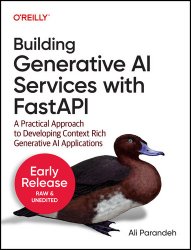 Название: Modernizing Product Development Processes: Guide for Engineers
Название: Modernizing Product Development Processes: Guide for EngineersАвтор: Jon M. Quigley, Amol Gulve
Издательство: SAE International
Год: 2023
Страниц: 231
Язык: английский
Формат: pdf (true)
Размер: 19.6 MB
Product lifecycles have shortened due to competition, rapidly changing markets, emerging technology, and regulation. Modernizing Product Development Processes: Guide for Engineers provides a foundation to focus on giving engineers, entrepreneurs, and innovators a guide to developing products with a new approach instead of a traditional product development cycle.
Product development (PD) is a crucial collection of functions vital to the success and expansion of a business. It is essential for both national commercial success and global competitiveness. We can define PD as identifying an untapped market opportunity and converting it into a valuable product for customer delight. We will couple this with emerging technology for the product design and the manufacturing line. Simply put, the PD processes are the mechanisms by which corporations aim to enter or gain in the market by taking the necessary steps to provide products or services (or both) for their targeted customers.
PD is a broad term for all the steps and goals required to make a new product or improve an existing one. There is no one right way to develop a product because there are many ways to create and enhance a product. It is always situation dependent, although there are some fundamentals. The optimum approach will depend on the organizational structure and competencies, the complexity of the product, and the supply chain required to design and manufacture.
There is a difference between PD and product management. This difference is one of the most significant misunderstandings regarding PD. It is easy to confuse these two names, which relate to quite distinct concepts. Product management is a subset of PD. Product management manages the scope, iterations, and variations, optimizing the product manufacturing.
It is challenging to articulate PD as it is context based and therefore misunderstood since it may apply differently in different industries and businesses. Occasionally, PD mistakenly refers to the development team responsible for creating the proposed solution. In this instance, the PD scope is restricted to a single group, but in our context, it refers to the entire system involved in bringing a product to market.
Product stewardship is a more common term for monitoring the manufacture of a product. This stewardship imparts product managers with the responsibility for managing the solution development, ensuring it has all essential components, and delivering it on schedule in conjunction with the project manager. The product manager is one of the myriad team members responsible for bringing a product to completion in PD. However, it is also a collection of knowledge areas required to articulate and control the development of the product.
In addition to new product development (NPD), with a bit of modification, the above descriptions can describe new service development. Similarly to NPD, new service development includes customer involvement via a customer interface mechanism. The customer interface mechanism works by having customers’ opinions in creating a new product or service. In addition, there are specific processes for identifying, managing, and controlling the effort in ways similar to developing the product.
Using the fundamental pillars of this book, the authors demonstrate how to bridge the gap in today's product development cycle to improve "time to market" needs in a fast-paced environment. These pillars include:
-Learning from failures and doing
-Harnessing creativity (out-of-the-box thinking)
-Front loading (develop concepts early)
-Explore multiple possible solutions
-Technology/Manufacturing readiness level
-Modularity (integrate common solutions)
In addition, the authors prepare engineers to scale up production to meet customer demands in a dynamic environment by demonstrating how to establish strategies and road maps with a stage gate approach focused on harnessing creativity to build concepts/technologies in early phases. In today's era of innovation, rapid technological growth, and high consumer demand, engineers must adapt and deliver products with reasonable, engineered solutions and this book shows them how.
Contents:
Скачать Modernizing Product Development Processes : Guide for Engineers
[related-news] [/related-news]
Комментарии 0
Комментариев пока нет. Стань первым!
















